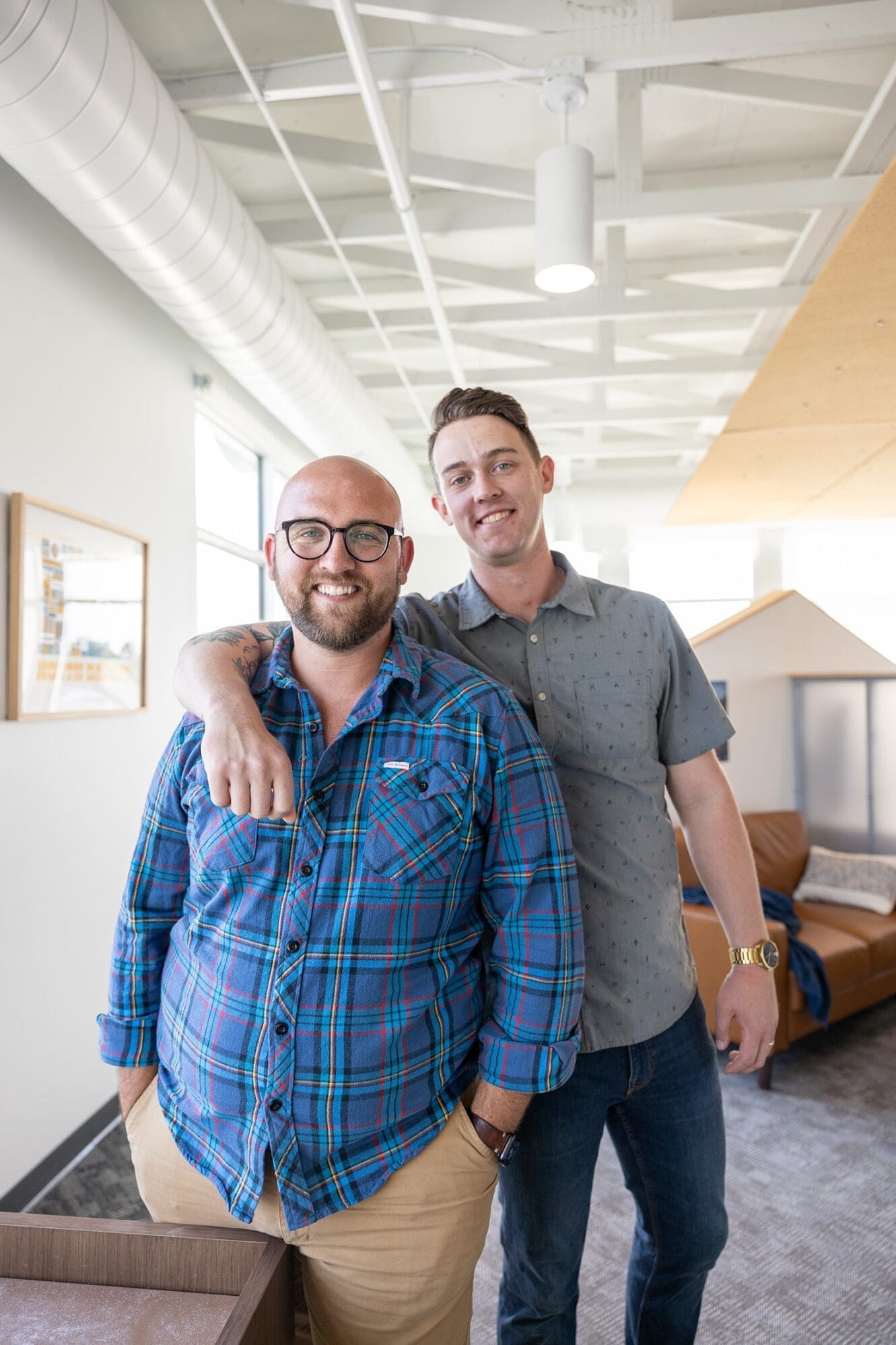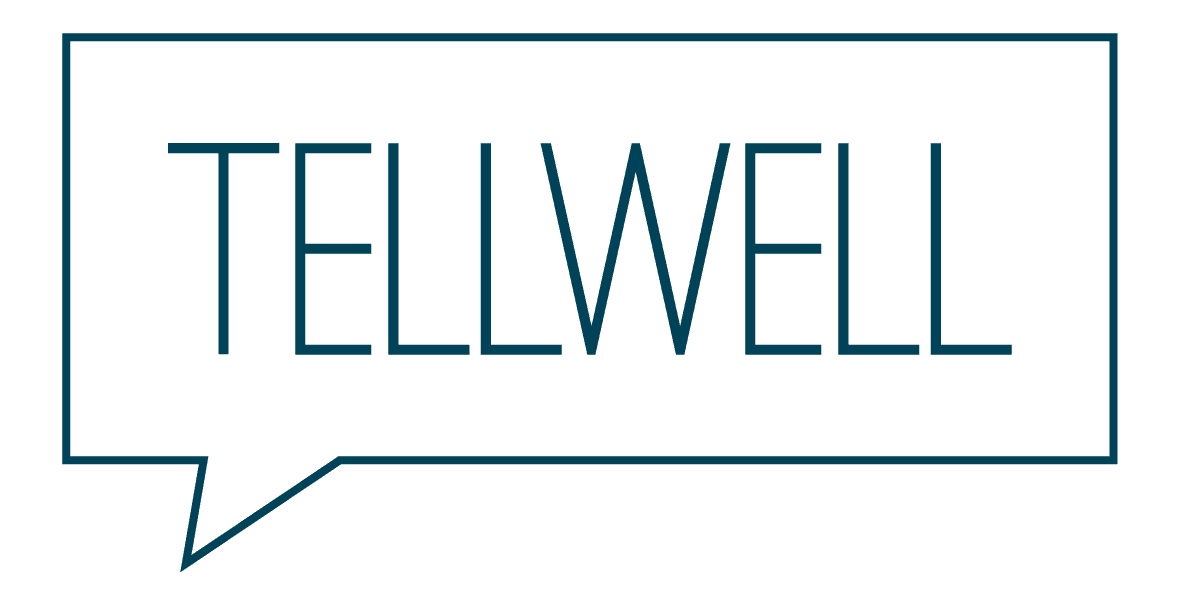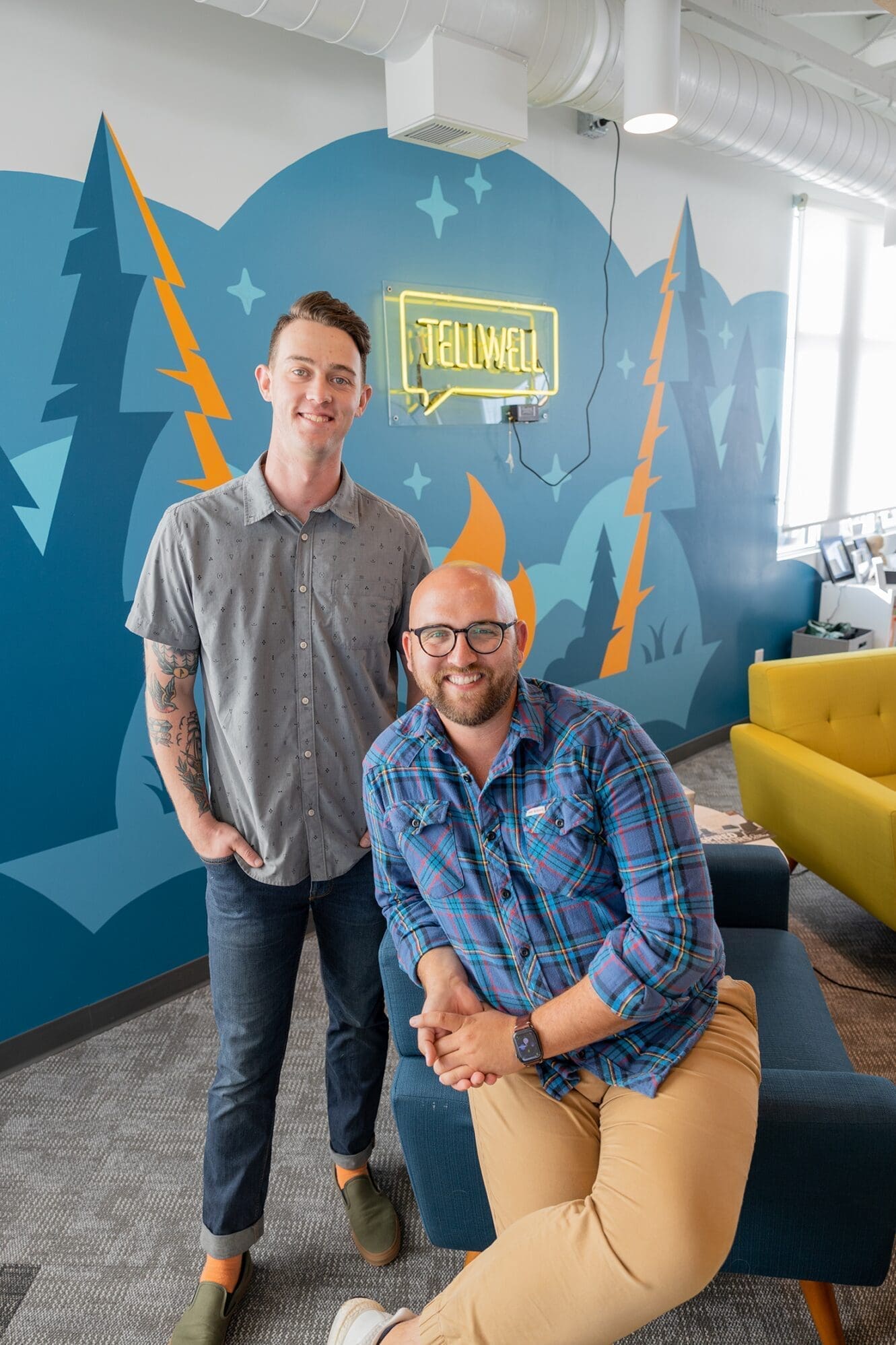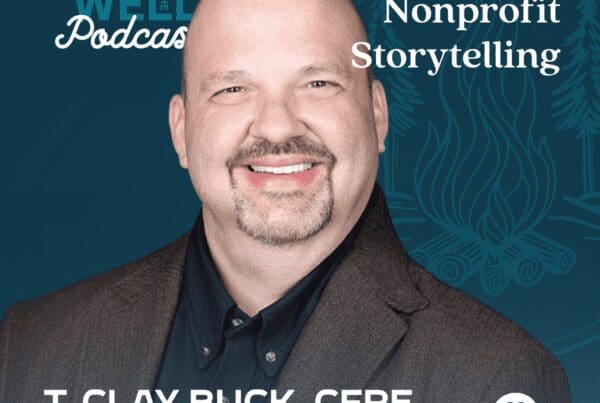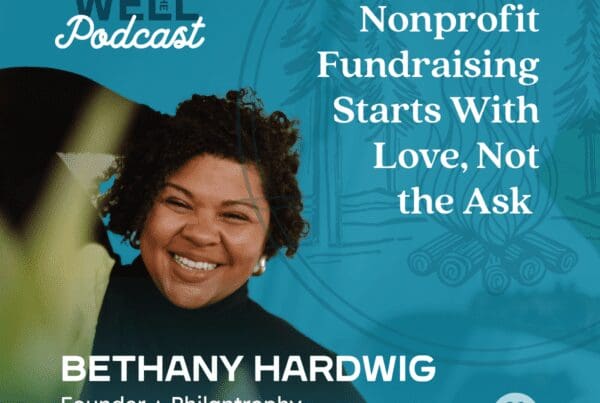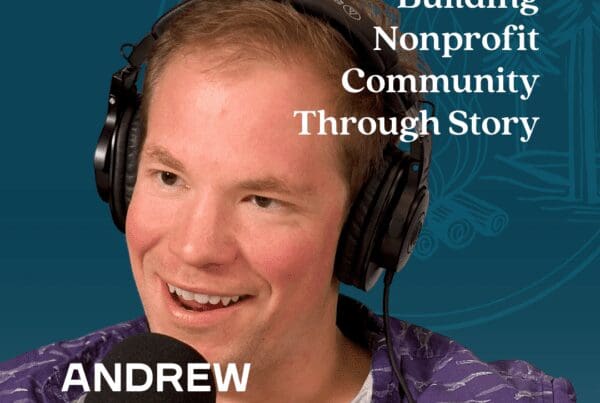As Max would say, the only constant in startup life is change. While I wouldn’t necessarily categorize Tellwell as still in the “startup stage” now that we’re eight years into this journey, the statement still rings true. Running a business is like driving a bus full of people down a constantly winding road: the asphalt curves, bumps rock the bus, and folks get on (and off) at each turn. It can feel lonely being that bus driver…that is, unless you have a co-pilot helping you navigate.
We’re excited to announce that Tellwell’s Senior Film Producer, Duncan Williamson, is advancing his responsibilities on the team and joining Max as a Partner in Tellwell Story Co. + Studio. I sat down with Duncan and Max to learn more about our new Partner, why he chose to deepen his relationship with Tellwell, and what he’s excited about for the future.
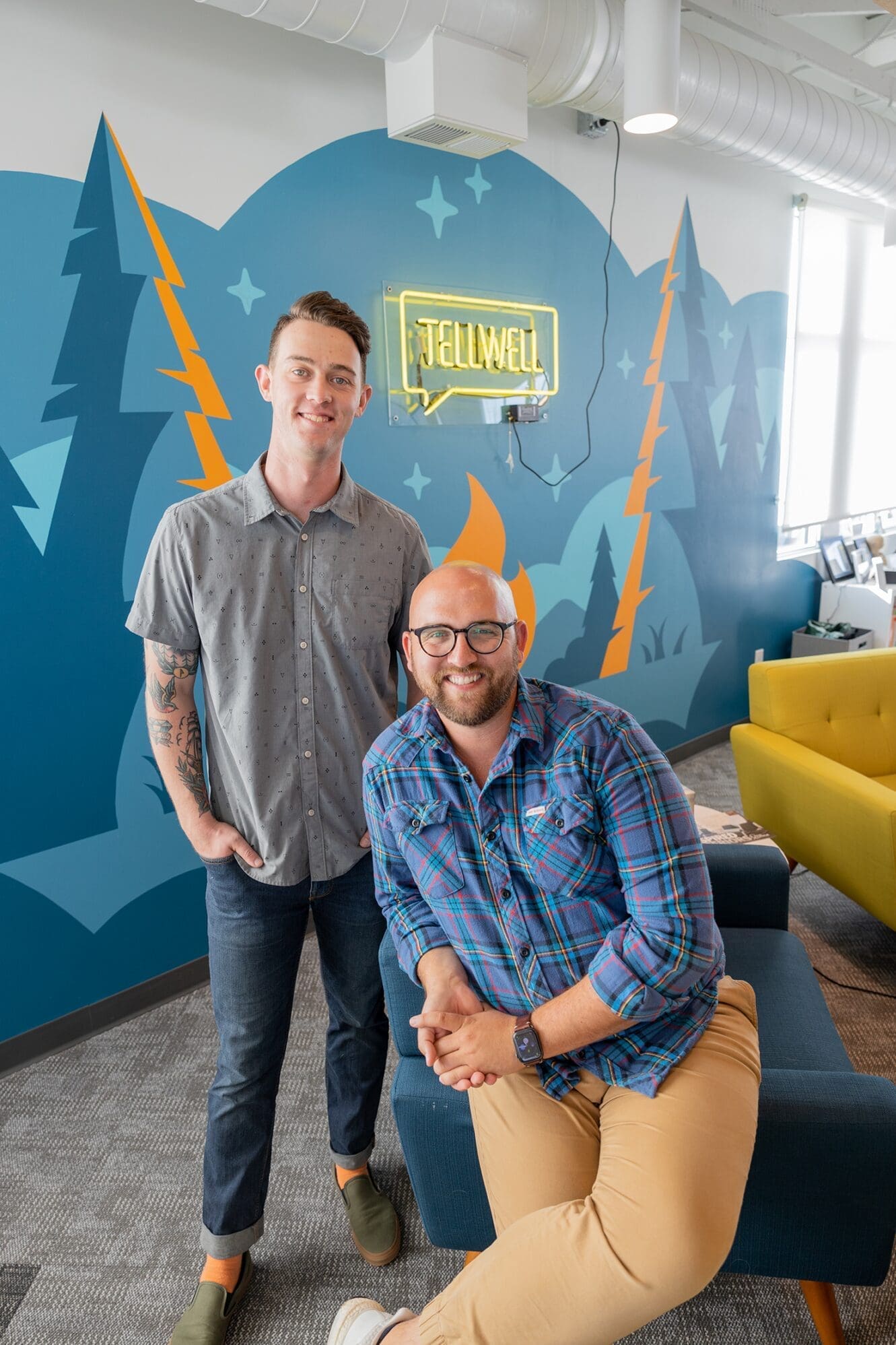
AP: How’d you get into the world of film production?
DW: The very beginning of my professional jump into film production was a career day in high school. We had to sign up to spend a whole day with someone and see what it would be like to work with them. I chose to shadow one of my mom’s friends, who owned Denver Film and Digital with her husband. I got to learn the very basics of cutting in Avid, adding crossfades, and things like that. I had already been making GoPro snowboarding videos with my friends for a few years at that point, but that was really when I discovered that film was something you could make a career out of.
I ended up going to Montana State University to study film production, and while I was still in school, I started a video production company with a few of my friends. There wasn’t a lot of good, high-quality video production happening in Bozeman at that time, so local folks started coming to us. When we graduated, one friend and I jumped in with both feet and took on the business full-time. There have been a few clients that I worked with and started a relationship with seven years ago, who are now with us at Tellwell, so that’s been fun to see.
AP: Why MSU?
DW: I liked Montana because it was like Colorado with fewer people and more cowboys.
AP: What makes you passionate about storytelling?
DW: Storytelling is involved in everything that we do in some way. I grew up in a very musical family, so there was a lot of time spent around the piano or the guitar. My parents were especially into traditional folk music, which is all about telling a story. One of my favorite things about film in particular is that you can tell a story without any words if you don’t want to.
AP: You’ve been here since the fall of 2020. Why did you choose Tellwell?
DW: When I came across the job offer with Tellwell, my wife Vanessa and I were very interested in being somewhere other than Bozeman. We were ready for something different, and we’d convinced ourselves that that “something different” was either Seattle or Portland–not exactly Fargo.
I was interested in the position because it seemed a lot like what I was already doing: working with a small team, creating short, documentary-style films. I was also excited to be in a place where I could do film production, which I love, but also be involved in design, writing, and all of the other pieces that go into a project. Plus, it was nice to be closer to family. Both Vanessa and I have family within two hours from here, while in Bozeman we were 11 hours from anyone.
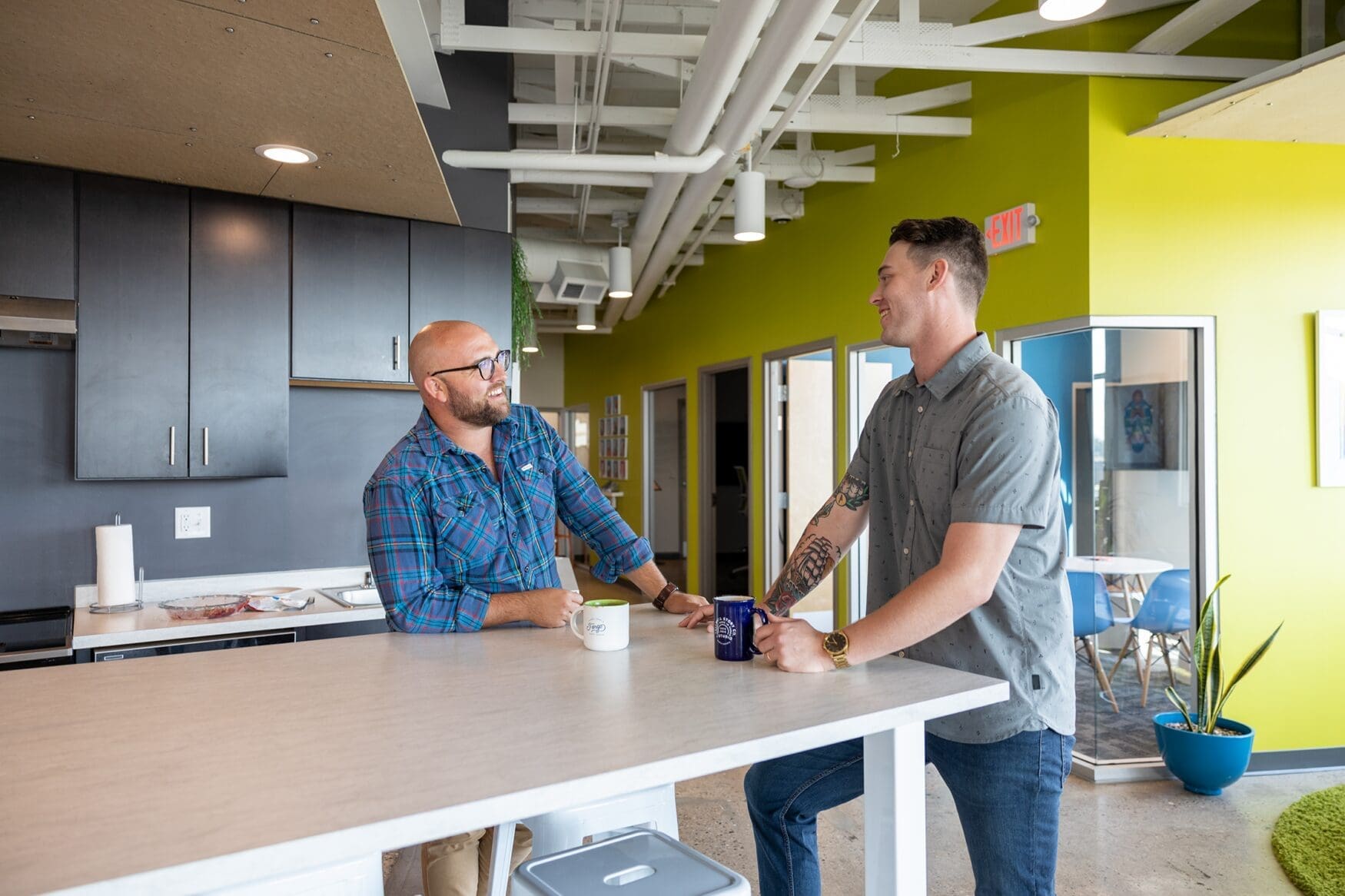
AP: What keeps you coming back to work everyday?
DW: Andrew’s beautiful face.
AP: Aw, shucks. But besides my beautiful face.
DW: The number one thing that keeps me coming back to work is the people that I work with. Moving across two very large states was a big leap of faith. When Vanessa and I came to Fargo, we didn’t have a built-in friend group. Plus we came in fall 2020, a time when it was not exactly easy to meet new people, so the people at Tellwell quickly became my closest friends.
Another one of my favorite things about Tellwell is that, being a small production team, we get to work with lots of different clients on lots of different projects–everything from nonprofits to bigger companies to documentary work. It’s very much the type of work that I think I’ll always like to do.
Also, Rosy’s cooking doesn’t hurt either.
AP: Why did you decide to take the leap and become a partner at Tellwell?
DW: It’s been a conversation for a while. Max and I realized quite early on that the two of us enjoyed working with each other, pushing each other’s ideas, and talking about what could be. Max talks a lot about creating the place where you want to work. That is something I’ve always loved about Tellwell, whether it’s seeing a cool studio space go up or going on a team ski day to Detroit Mountain. This feels like another way that I can be directly involved in creating the place where I want to work.
I’ve never been somebody that does things half-assed. I usually jump in with both feet, and I realized pretty quickly that I didn’t want Tellwell to just be a 9-5 job. It’s a much more long-term thing for me.
DW: But I didn’t get to just decide to be a partner. Max had to be open to the idea. So Max, why are we doing this together?
MK: Once Duncan got here, he invested in the team both creatively and emotionally. We have differing memories on who approached whom about it, but what’s important is that we were coming to the same conclusions. Our conversations were no longer about where we are going to be in a month. It was turning into where we want to be in two years.
One of the less great things about being a small business owner is that no one really understands what you do. The idea of being able to share that with someone who had been a small business owner, who understood what it takes, who had experience working with his close friends, was really exciting.
DW: It can be very lonely to be a business owner by yourself. Both of us have had that experience, so I think both of us came into this with very similar hopes and dreams for what it means for two of us to be working together at that level. I think another thing that this does, by putting a graphic designer by trade and a video producer by trade in this position together, continues to reinforce that we are pushing to make those two things our focus as a business.
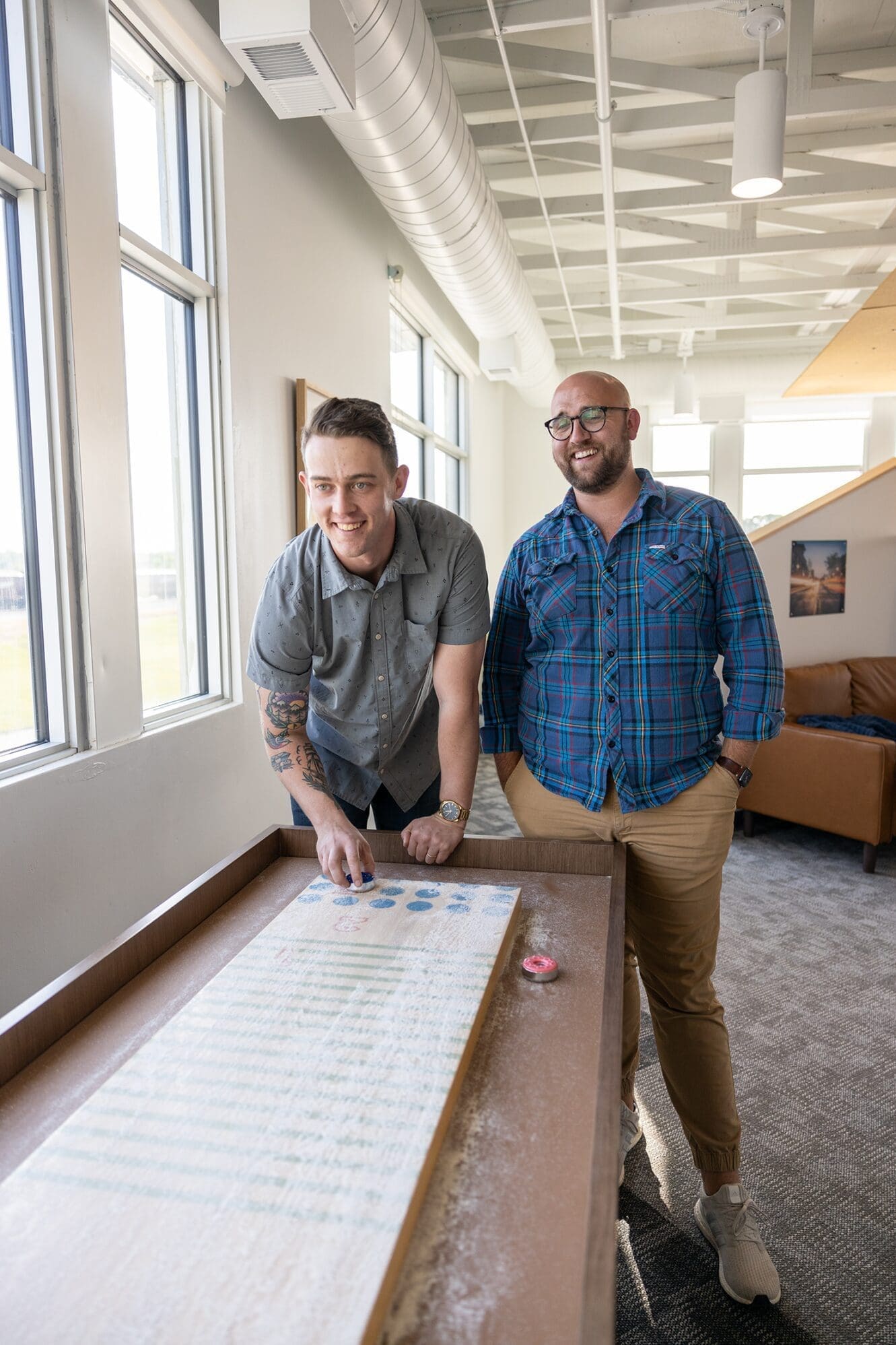
AP: What are your goals for the future of Tellwell?
DW: I want us to continue to grow our quality of storytelling, whether that is the stories that we get to tell or the technical aspects of our production. I also want to continue to engage our community around what we do. Fargo Docs is an example of that.
MK: My goal is to continue to create a place where people want to go to work everyday, where people feel like they can be authentically themselves. I think the way we do that is by continuing to procure cool projects and push our team to do the things that are beyond just their job description.
AP: What are you proud of?
DW: I am proud of the work that we have done as a team over the past two years, how we have continued to punch above our weight class. It’s amazing to see how our small teams, like two graphic designers, two film producers, and one writer, can produce work that’s so much better than people think it can be. I’m also very proud of our team’s community involvement. The work we have been able to do with FM Pride, our Pride Stories series, and Fargo Docs shows that our team doesn’t just care about the people in this office but in this community as a whole.
AP: What are you excited about for the future?
DW: I’m really excited about the team of people that we have. I think we are building a really great team of people, with an excitement and energy to get cool projects done in a really high-quality way. We all push each other to do better and better work. The jumps that we’ve made, even since I came here, are amazing and I’m excited to continue on that trajectory.
